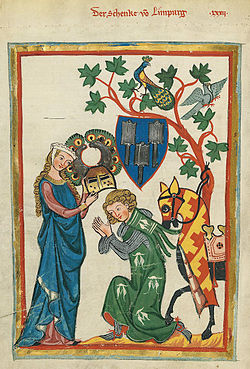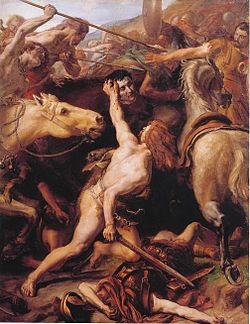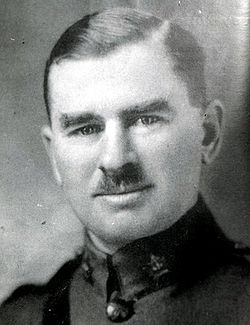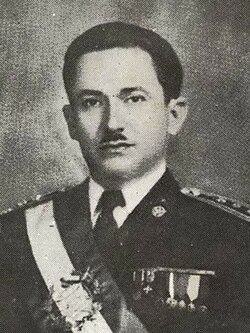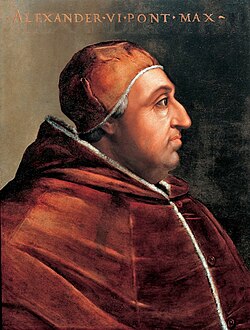Portal:History
The History Portal
History is the systematic study of the past, focusing primarily on the human past. As an academic discipline, it analyses and interprets evidence to construct narratives about what happened and explain why it happened. Some theorists categorize history as a social science, while others see it as part of the humanities or consider it a hybrid discipline. Similar debates surround the purpose of history—for example, whether its main aim is theoretical, to uncover the truth, or practical, to learn lessons from the past. In a more general sense, the term history refers not to an academic field but to the past itself, times in the past, or to individual texts about the past.
Historical research relies on primary and secondary sources to reconstruct past events and validate interpretations. Source criticism is used to evaluate these sources, assessing their authenticity, content, and reliability. Historians strive to integrate the perspectives of several sources to develop a coherent narrative. Different schools of thought, such as positivism, the Annales school, Marxism, and postmodernism, have distinct methodological approaches.
History is a broad discipline encompassing many branches. Some focus on specific time periods, such as ancient history, while others concentrate on particular geographic regions, such as the history of Africa. Thematic categorizations include political history, military history, social history, and economic history. Branches associated with specific research methods and sources include quantitative history, comparative history, and oral history.
History emerged as a field of inquiry in antiquity to replace myth-infused narratives, with influential early traditions originating in Greece, China, and later in the Islamic world. Historical writing evolved throughout the ages and became increasingly professional, particularly during the 19th century, when a rigorous methodology and various academic institutions were established. History is related to many fields, including historiography, philosophy, education, and politics. (Full article...)
Featured picture
Did you know (auto generated)

- ... that Elisabeth Griffith's sweeping 100-year history of the American equal-rights movement has been compared to listening to Billy Joel's "We Didn't Start the Fire"?
- ... that Fairleigh Dickinson's upset victory over Purdue was the biggest upset in terms of point spread in NCAA tournament history, with Purdue being a 23+1⁄2-point favorite?
- ... that historically, native mercury was extracted from rocks mined in Idrija by washing them in the stream Nikova?
- ... that Mary Sheffield is the youngest elected member and the youngest president in the Detroit City Council's history?
- ... that interviews collected for a Boston College oral history project were used in two murder trials?
- ... that Maggio di Accettura, a festival in Italy dedicated to the Christian martyr Saint Julian, might have pagan origins or be linked to Langobard history?
Carlos Castillo Armas (locally ['kaɾlos kas'tiʝo 'aɾmas]; 4 November 1914 – 26 July 1957) was a Guatemalan military officer and politician who was the 28th president of Guatemala, serving from 1954 to 1957 after taking power in a coup d'état. A member of the far-right National Liberation Movement (MLN) party, his authoritarian government was closely allied with the United States.
Born to a planter, out of wedlock, Castillo Armas was educated at Guatemala's military academy. A protégé of Colonel Francisco Javier Arana, he joined Arana's forces during the 1944 uprising against President Federico Ponce Vaides. This began the Guatemalan Revolution and the introduction of representative democracy to the country. Castillo Armas joined the General Staff and became director of the military academy. Arana and Castillo Armas opposed the newly elected government of Juan José Arévalo; after Arana's failed 1949 coup, Castillo Armas went into exile in Honduras. Seeking support for another revolt, he came to the attention of the US Central Intelligence Agency (CIA). In 1950 he launched a failed assault on Guatemala City, before escaping back to Honduras. Influenced by lobbying by the United Fruit Company and Cold War fears of communism, in 1952 the US government of President Harry Truman authorized Operation PBFortune, a plot to overthrow Arévalo's successor, President Jacobo Árbenz. Castillo Armas was to lead the coup, but the plan was abandoned before being revived in a new form by US President Dwight D. Eisenhower in 1953. (Full article...)
On this day
May 4: Youth Day in China; Literary Day in Taiwan; Star Wars Day
- 1493 – Pope Alexander VI (pictured) issued the papal bull Inter caetera, establishing a line of demarcation dividing the New World between Spain and Portugal.
- 1776 – American Revolution: The Colony of Rhode Island and Providence Plantations became the first of the Thirteen Colonies to renounce its allegiance to the British Crown.
- 1942 – World War II: Aircraft from Imperial Japanese Navy vessels attacked Allied naval forces, beginning the Battle of the Coral Sea, the first naval action in which the participating ships never sighted or fired directly at each other.
- 1974 – An all-female Japanese team reached the summit of Manaslu in the Himalayas, becoming the first women to climb a peak higher than 8,000 metres (26,247 ft) above sea level.
- 1979 – Margaret Thatcher became the first female prime minister of the United Kingdom.
- John Nevison (d. 1684)
- Nettie Stevens (d. 1912)
- Audrey Hepburn (b. 1929)
Selected quote
I hate this fast growing tendency to chain men to machines in big factories and deprive them of all joy in their efforts — the plan will lead to cheap men and cheap products.
— Richard Wagner, 19th century German composer
Related portals
More Did you know...
- ... that the underground Fortress of Mimoyecques (pictured) was built by Nazi Germany to bombard London with 10 shells a minute using the V-3 supergun?
- ... that Howard P. Perry was the first African American recruit in the United States Marine Corps?
- ... that the Chester city walls form the most complete circuit of Roman and medieval defensive town walls in Britain?
- ... that China's first female director was adopted by the first Premier of the People's Republic of China?
- ... that the Medieval Merchant's House in Southampton was being used as a brothel when bomb damage during the Blitz revealed the building's important medieval architecture?
- ... that the Sumerian "river of paradise", the Hubur, derived partly from real geography before becoming a demonic fantasy?
- ... that Bill Foley's photograph "The Last Smile" shows Anwar Sadat only moments before his assassination?
- ... that the 1911 Sarez earthquake triggered a huge landslide, forming the tallest dam in the world?
Topics
Categories

History • By period • By region • By topic • By ethnic group • Historiography • Archaeology • Books • Maps • Images • Magazines • Organizations • Fictional • Museums • Pseudohistory • Stubs • Timelines • Chronology • People • Wikipedia historians
WikiProjects
![]() WikiProject History •
Ancient Near East • Australian History • Classical Greece and Rome • Dacia • Former countries • History of Canada • Chinese history • European history • Heraldry and vexillology • Indian history • Jewish history • Medieval Scotland • Mesoamerica • Military history • Middle Ages • History of Science
WikiProject History •
Ancient Near East • Australian History • Classical Greece and Rome • Dacia • Former countries • History of Canada • Chinese history • European history • Heraldry and vexillology • Indian history • Jewish history • Medieval Scotland • Mesoamerica • Military history • Middle Ages • History of Science
WikiProject Time • Days of the Year • Years
WikiProject Biography • Composers • Political figures • Saints • United States Presidents
Things you can do
 |
Here are some tasks awaiting attention:
|
Associated Wikimedia
The following Wikimedia Foundation sister projects provide more on this subject:
-
Commons
Free media repository -
Wikibooks
Free textbooks and manuals -
Wikidata
Free knowledge base -
Wikinews
Free-content news -
Wikiquote
Collection of quotations -
Wikisource
Free-content library -
Wikiversity
Free learning tools -
Wiktionary
Dictionary and thesaurus

